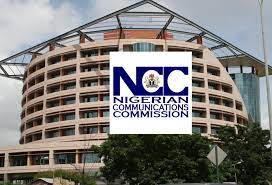At the culmination of the World Radiocommunications Conference (WRC) 2023, Nigeria has formally endorsed the Final Act WRC-23, marking a significant milestone in the commitment to fostering global connectivity through the adoption of updated Radio Regulations.
The Final Act encapsulates both new and revised provisions within the Radio Regulations, a pivotal international treaty governing the utilization of radio-frequency spectrum and satellite orbits.
Representing Nigeria, Dr. Bosun Tijani, the Minister of Communications, Innovation, and Digital Economy, led the delegation, which included key figures such as Dr. Aminu Maida, the Executive Vice Chairman of the Nigerian Communications Commission (NCC), and Mrs. Jane Egerton-Idehen, the Managing Director of Nigerian Communications Satellite Limited (NigComSat Ltd).
WRC-2023, a triennial global inter-governmental treaty conference convened by the International Telecommunication Union (ITU), concluded with participating nations formally signing the updated Final Act, reflecting the decisions collectively made during the conference.
According to the International Telecommunication Union (ITU), the revised Radio Regulations endorse the identification of new spectrum resources aimed at supporting technological innovation, strengthening global connectivity, facilitating access to and equitable utilization of space-based radio resources, and enhancing safety in maritime, aviation, and terrestrial environments.
Key decisions from the conference include the allocation of spectrum for International Mobile Telecommunications (IMT), a critical step in expanding broadband connectivity and advancing IMT mobile services such as 4G, 5G, and the anticipated 6G.
Furthermore, the conference identified new frequencies for non-geostationary fixed-satellite service Earth Stations in Motion (ESIMs), providing high-speed broadband connectivity for mobile applications in aircraft, vessels, trains, and vehicles. These services are crucial, particularly in disaster scenarios where local communication infrastructure may be compromised.
Provisions were also incorporated to safeguard ship and aircraft mobile service stations situated in international airspace and waters from interference by stations within national territories.
Nigeria’s delegation to the conference comprised seasoned engineers and experts in telecommunications and satellite regulations from various entities, including the Ministry, NCC, National Broadcasting Commission (NBC), NigComSat Ltd, National Space Research and Development Agency (NASRDA), Nigeria Airspace Management Agency (NAMA), telecom operators, and other stakeholders from the Nigerian telecommunications industry.
Dr. Bosun Tijani expressed gratitude to the delegation for their dedication, acknowledging their efforts as essential for the collective future benefit of Nigeria. He urged the delegation to initiate preparations for future conferences, emphasizing the need for capacity development through extensive research and inter-agency collaboration to safeguard the country’s interests.
Dr. Aminu Maida, during an engagement with the Nigerian delegation, commended their collaborative efforts in securing Nigeria’s best interests. He highlighted the conference’s significance for Nigeria, stating that the agreements reached will provide valuable spectrum resources benefiting stakeholders, especially ordinary Nigerians, by improving service quality and narrowing the digital divide in rural areas.
Maida emphasized that the establishment of international standards for radiocommunications and the decisions made at the conference will influence the development and implementation of new technologies, aligning with Nigeria’s broader objectives in expanding broadband connectivity and transitioning to 5G and future 6G technologies while improving the quality of experience and ensuring equitable access for all Nigerians

Leave a Reply